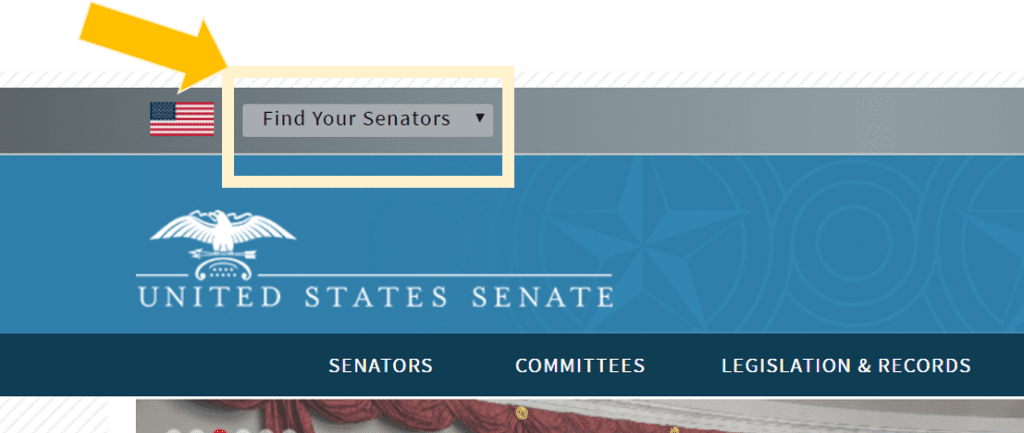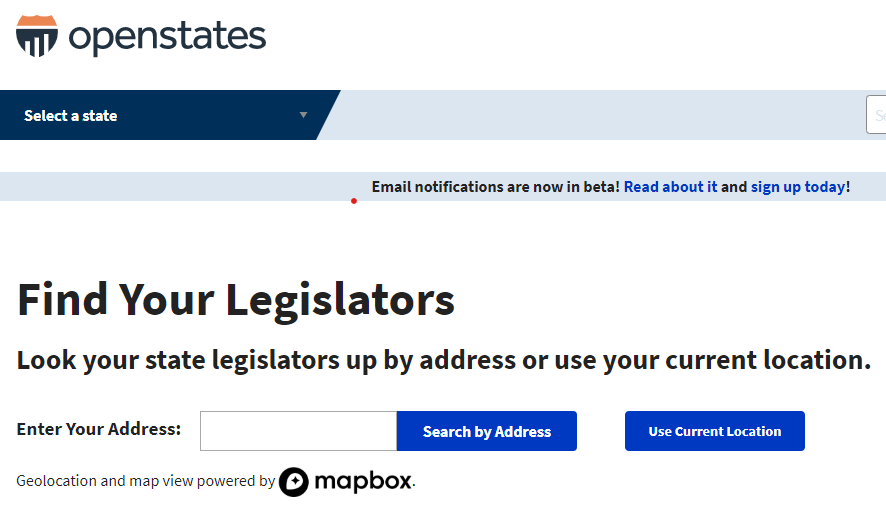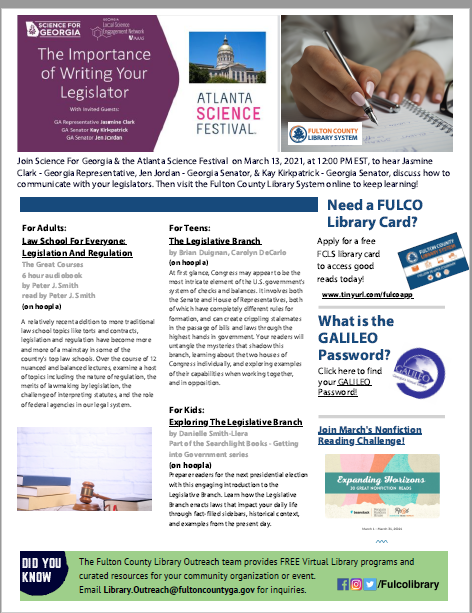Why is it important you write your legislator?
Representatives have a lot of constituents in districts that span urban/rural divides, income disparities, and a myriad of interests. Daily, they are faced with multiple issues from public safety, to the budget, to healthcare. Since representatives and their average staff members cannot be experts on every issue, providing them with a clear, concise, and actionable position makes their job of representing your interests easier.
Taking the time to establish a relationship with your representative establishes you as a thoughtful constituent. If you really want to get involved, send a letter once a quarter about an issue that is important to you, but not urgent. That way, when a truly urgent or hot button issue for you comes up, your opinion may be considered with added value.
If once a quarter seems too daunting, don’t worry. Writing once in a blue moon about something vital to you is also effective.
Learn about this from GA Legislators.
What to Say. Be Clear. Be Concise. Be Respectful.
1. Think “straightforward” and “succinct”
- Present one issue at a time.
- Provide a clear yes/no stand on this issue. (If an email communication, state your opinion in the email subject line i.e. “Please vote YES on Bill 23”)
- Back up your stand with a maximum of three arguments.
2. Introduce yourself
- State you live in their district (provide at least your name and zip code).
- State your qualifications to speak on the issue (if you have them).
- State group memberships (if applicable).
3. Provide a narrative on the issue
A personal story about how the issue affects you
OR
How this affects the community / state
4. Highlight a personal connection (if possible)
- I voted for you.
- I met you at a BBQ.
- I also play baseball.
5. Sign your name and address
6. Be Passionate. Show You Care. Do not go overboard
How to Say It
Emails are the fastest and most direct line of communication. They are most impactful when personalized (and not a form letter).
Post Cards and letters are more impactful then emails because they indicate time and effort. Do not use these for time-sensitive communication, as they may arrive too late.
Phone calls may be problematic on a State Level because legislators do not have the staff to support answering the phone. On the Federal Level, where they have more staff, the phone is another quick way to voice your opinion on a time-sensitive matter.
Samples & Templates
- Post Card
- Letter/Email
- Social Media
Dear Rep X.
Please support programs to curb illegal dumping. Illegal dumps harm the local community by causing diseases that keep people out of work. I want my community to prosper and everyone to reach their full potential.
Thank you for your time,
Vicky Voter
District 12, Your Town, Zip Code
(for security – you don’t have to list your full address if you don’t want to)
Click on the image below to download a Post Card template to fill and print. (Thanks to our friends at EScAN)
Dear Rep X,
I am Vicky Voter, and I live in your district.
I ask you to support programs to reduce illegal tire dumping. This is important because tire dumps have been shown to cause chronic health problems in nearby communities. The standing water attracts vermin that carry disease. The runoff waste seeps into the local farmland and water sources.
My Aunt Louise lives near an unregulated tire dump. She now has chronic asthma. The fumes inflame her symptoms. After too many sick days, she lost her job and is now on disability. She has worked all her life as a teacher. She loved helping people. Now she can no longer do the things she loves. Not only is she suffering, but her local community has lost out on a terrific teacher.
[OR Tire dumps are often located near low-income neighborhoods. Residents develop chronic diseases and cannot work, further sliding into economic vulnerability. Think of all the people who want to work, who could be making their communities better, and the opportunities lost.]
I voted for you last fall, in part, because of your platform about getting people back to work.
Thank you for your time,Sincerely,
Vicky Voter
123 Main St, Your Town, State
vivky@fakeemailaddress
@REPX – Please vote “yes” on BILL 7324
CAUTION: your history is an open book. Be mindful of your post history.
Who Reads and What Happens to Your Message?
At the state level, your message is typically read by the legislator themselves. At the federal level, it is typically read by a staff member.
NOTE: It is very important to be clear on your yes or no opinion.
Address one issue, provide one action.
Provide a method to follow-up with you.
How Do Legislators Get Information?
At a federal level, legislators have access to a research team. And in Georgia there is a research department.
Remember, legislators are dealing with multiple issues a day, people who are around and providing honest information are a valuable resource. These include:
- Paid lobbyists
- National conference of State Senators
- Special interest groups
- Caucuses
- Professional and personal networks
- Constituents like you
Can I Provide Testimony or Commentary?
Yes. In the Georgia General Assembly, you can request to testify before a committee by writing a member of that committee. When a committee hearing is held on a specific bill, you can sign-up to give a comment during the public comment period. To do this:
- Follow the bill of interest (track is via the GA General Assembly Website)
- Determine when the hearing is.
- Show up for the “in-person” hearing and sign up to speak the day-of OR request to speak during the “virtual” hearing.
If you testify, remember the same rules as a letter: clear, concise, and respectful.
Handout
Download this handout to keep these tips and tricks close at hand.
I’m too Young to Vote. What Can I Do?
You can still be involved in the government even if you aren’t 18 yet. Here are some suggesitons:
- Talk to your parents, grandparents, neighbors about issues that concern you – they are voters.
- Connect with special interest groups that represent issues you care about.
- Learn how the system works.
- Reach out to your legislator – they will still listen to you. A senator recently introduced legislation based on input from a local Girl Scout troop.
- Become a page on the floor of the Georgia General Assembly (contact your legislator about this).
What Does the Georgia General Assembly Do vs the US Congress?
To figure out where your issue belongs, think about who it effects.
- Does this issue effect everyone in the US? That’s a Federal issue.
- Does it just effect the state of Georgia? That’s a GA General Assembly issue.
- Does it just effect my city or neighborhood? That’s a local issue.
If your issue is local to you but also reaches a larger audience, you can reach out to your local legislators, and work together on the larger issue.
Your Georgia General Assembly legislator can help you navigate state services, and your US legislator can help you navigate federal services.
The Georgia General Assembly must pass a balanced budget every year. This is a great way to make an impact in terms of budget allocations to address an issue. Want more money for greenspaces, or research labs? Contact your legislator and discuss strategies for federal/state/private partnerships to make things happen.
Does This Actually Make a Difference?
Yes. Legislators listen to their constituents.
For example, in recent sessions the citizen’s arrest law was repealed and a hate crime bill was passed. These were the direct result of public concerns.
Policy making is a long-term solution, so your concern may not be addressed right away, but it helps to build momentum and raise awareness around issues. And relentless incremental progress leads to true long-term change.
A few years ago people were saying there wasn’t enough sun for solar energy and now Georgia is a leading solar energy producer.
How to Find your Legislator

in the US Senate

in the US House

in your State
Learn More

How else can I exercise my voice?
Vote in Elections
Check your status and register to vote — USA.gov has links to online registration and voter status for 39 states plus DC


